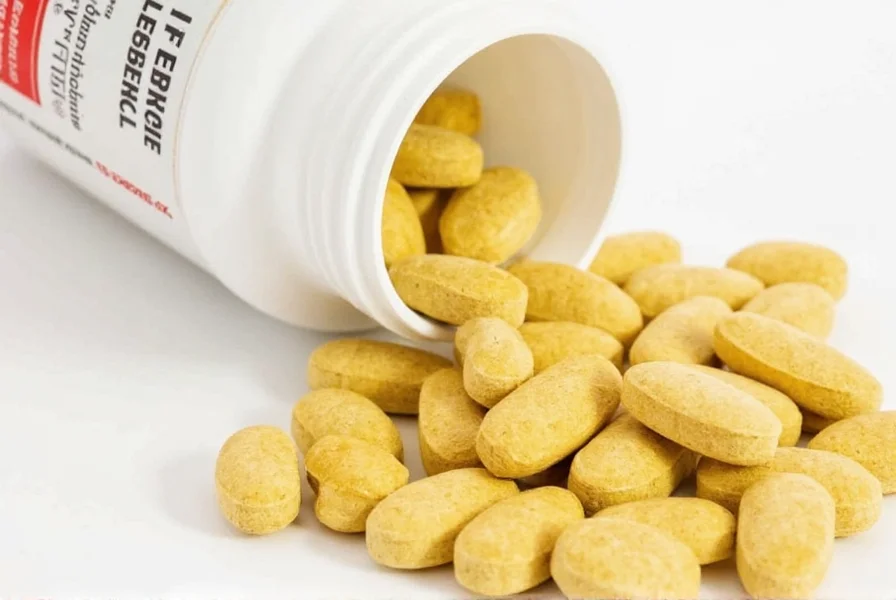Fenugreek (Trigonella foenum-graecum) has been used for centuries in traditional medicine systems across the Middle East, India, and North Africa. Modern research has validated several health applications of this versatile herb, particularly in its standardized tablet form which offers consistent dosing compared to raw seeds.
What Makes Fenugreek Tablets Different From Raw Seeds
While traditional preparations used whole fenugreek seeds, tablets provide several advantages for therapeutic use:
| Characteristic | Fenugreek Seeds | Fenugreek Tablets |
|---|---|---|
| Dosage Precision | Variable (1-6 grams) | Standardized (500-1000mg) |
| Active Compound Consistency | Highly variable | Standardized (4-6% 4-hydroxyisoleucine) |
| Convenience | Requires preparation | Easy consumption |
| Bitter Taste Masking | Pronounced bitterness | Encapsulated |
The standardization of active compounds like 4-hydroxyisoleucine and galactomannan fiber is what makes fenugreek tablets particularly valuable for evidence-based applications. This consistency allows for reliable dosing in clinical settings and personal use.
Science-Backed Health Benefits of Fenugreek Tablets
Research supports several specific applications where fenugreek tablets demonstrate measurable benefits:
Blood Sugar Management in Type 2 Diabetes
Multiple clinical trials indicate fenugreek tablets can improve glycemic control. A 2022 meta-analysis published in Nutrition Reviews examined 12 randomized controlled trials involving 725 participants. The analysis found that fenugreek supplementation significantly reduced fasting blood glucose by an average of 18.9 mg/dL and HbA1c by 0.58% compared to placebo.
The mechanism appears related to fenugreek's high fiber content slowing carbohydrate absorption and the amino acid 4-hydroxyisoleucine enhancing insulin secretion. For optimal blood sugar support, look for tablets standardized to contain at least 50% galactomannan fiber.
Lactation Support for Breastfeeding Mothers
Fenugreek tablets remain one of the most widely used galactagogues (milk production enhancers). A 2021 systematic review in Complementary Therapies in Medicine analyzed eight studies with 578 participants. The review concluded that fenugreek supplementation significantly increased breast milk production within 24-72 hours of starting treatment.
Most lactation specialists recommend a dosage of 1,800-2,400 mg daily in divided doses, typically noticing effects within 24-72 hours. However, women with peanut or chickpea allergies should avoid fenugreek due to potential cross-reactivity.
Testosterone and Libido Effects in Men
Research on fenugreek tablets for male sexual health shows promising but mixed results. A double-blind, placebo-controlled trial published in Phytotherapy Research (2020) followed 100 men with low testosterone for 12 weeks. The group taking 600 mg daily of standardized fenugreek extract showed significant improvements in total testosterone levels (average increase of 25%) and sexual function scores compared to placebo.
However, a 2022 review in Andrologia noted that while some studies show benefits, the overall evidence remains preliminary. More large-scale, long-term studies are needed to confirm these effects.
Recommended Dosage Guidelines
Dosage requirements vary based on the intended health benefit:
- Blood sugar management: 500-1,000 mg twice daily with meals
- Lactation support: 500-600 mg three times daily (total 1,800-2,400 mg)
- Testosterone support: 500-600 mg twice daily
Most clinical studies show effects become noticeable after 2-4 weeks of consistent use. It's important to choose tablets standardized to contain specific percentages of active compounds for reliable results.
Safety Profile and Potential Side Effects
Fenugreek tablets are generally well-tolerated when used at recommended dosages, but potential side effects include:
- Mild gastrointestinal issues (bloating, gas, diarrhea)
- Maple syrup-like body odor (due to sotolone compound)
- Skin reactions in sensitive individuals
- Hypoglycemia when combined with diabetes medications
More serious concerns require medical attention:
- Significant drops in blood sugar (especially for diabetics on medication)
- Allergic reactions (hives, swelling, difficulty breathing)
- Abnormal bleeding (fenugreek may have mild anticoagulant effects)
Individuals with the following conditions should consult a healthcare provider before using fenugreek tablets:
- Diabetes (may require medication adjustment)
- Peanut or chickpea allergies (cross-reactivity risk)
- Pregnancy (may stimulate uterine contractions)
- Breast cancer (theoretical estrogenic effects)
- Upcoming surgery (potential bleeding risk)
Evaluating Quality When Selecting Fenugreek Tablets
Not all fenugreek supplements offer the same quality. Consider these factors when choosing a product:
- Standardization: Look for tablets specifying percentages of key compounds like 4-hydroxyisoleucine (minimum 0.8-1.0%) or galactomannan fiber (minimum 50%)
- Third-party testing: Products verified by USP, NSF, or ConsumerLab provide assurance of purity and potency
- Extraction method: Water-based extracts preserve different compounds than alcohol-based extracts
- Additives: Avoid unnecessary fillers, artificial colors, or preservatives
High-quality fenugreek tablets typically contain 500 mg per dose with clear labeling of active constituents. Products that simply list "fenugreek seed powder" without standardization are less likely to deliver consistent results.

Current Research Limitations and Future Directions
While promising, fenugreek tablet research has several limitations worth noting:
- Many studies have small sample sizes (fewer than 100 participants)
- Limited long-term safety data beyond 6-12 months of continuous use
- Variability in extract composition between studies makes comparisons difficult
- Most research comes from India and the Middle East, with less data from Western populations
Future research directions include larger, multi-center trials, standardized extract formulations, and investigation into potential applications for polycystic ovary syndrome (PCOS) and metabolic syndrome.
Practical Recommendations for Safe Use
For those considering fenugreek tablets, follow these evidence-based recommendations:
- Consult your healthcare provider before starting, especially if you have medical conditions or take medications
- Start with the lowest effective dose and monitor your body's response
- Choose products with third-party verification for quality assurance
- Be patient—most benefits require 2-4 weeks of consistent use
- Discontinue use if you experience adverse reactions
- Don't exceed recommended dosages without medical supervision
Fenugreek tablets represent a promising natural option for specific health concerns, but they're not a magic solution. Realistic expectations and proper usage are key to experiencing potential benefits while minimizing risks.

Do fenugreek tablets really increase breast milk production?
Multiple clinical studies indicate fenugreek tablets can increase breast milk production, with most women noticing effects within 24-72 hours. A 2021 systematic review of eight studies with 578 participants found significant increases in milk production. However, individual responses vary, and women with peanut allergies should avoid fenugreek due to potential cross-reactivity.
How long does it take for fenugreek tablets to work for blood sugar control?
Research suggests it typically takes 2-4 weeks of consistent use at recommended dosages (500-1,000 mg twice daily) to see measurable improvements in blood sugar levels. A 2022 meta-analysis found significant reductions in fasting blood glucose and HbA1c after 8-12 weeks of supplementation. Diabetics should monitor blood sugar closely and consult their physician about potential medication adjustments.
Can fenugreek tablets interact with medications?
Yes, fenugreek tablets may interact with certain medications. They can enhance the effects of diabetes medications, potentially causing hypoglycemia. Fenugreek may also have mild anticoagulant properties, so caution is advised when taking blood thinners. Additionally, due to potential estrogenic effects, they might interact with hormone therapies. Always consult your healthcare provider before combining fenugreek tablets with prescription medications.
What's the difference between fenugreek tablets and capsules?
The primary difference between fenugreek tablets and capsules is the delivery method, not the active ingredients. Tablets are compressed powder that may dissolve more slowly, while capsules contain powder that's released more quickly. Some people find capsules easier to swallow, while others prefer tablets for their stability. Quality considerations like standardization and third-party testing matter more than the delivery format when evaluating effectiveness.
Are there any long-term safety concerns with taking fenugreek tablets?
Current research suggests fenugreek tablets are safe for most people when used at recommended dosages for up to 6 months. However, long-term safety data beyond one year is limited. Some animal studies suggest potential thyroid effects with extremely high doses over extended periods, but this hasn't been demonstrated in human studies at normal dosages. As with any supplement, periodic breaks and medical supervision for extended use are prudent.











 浙公网安备
33010002000092号
浙公网安备
33010002000092号 浙B2-20120091-4
浙B2-20120091-4